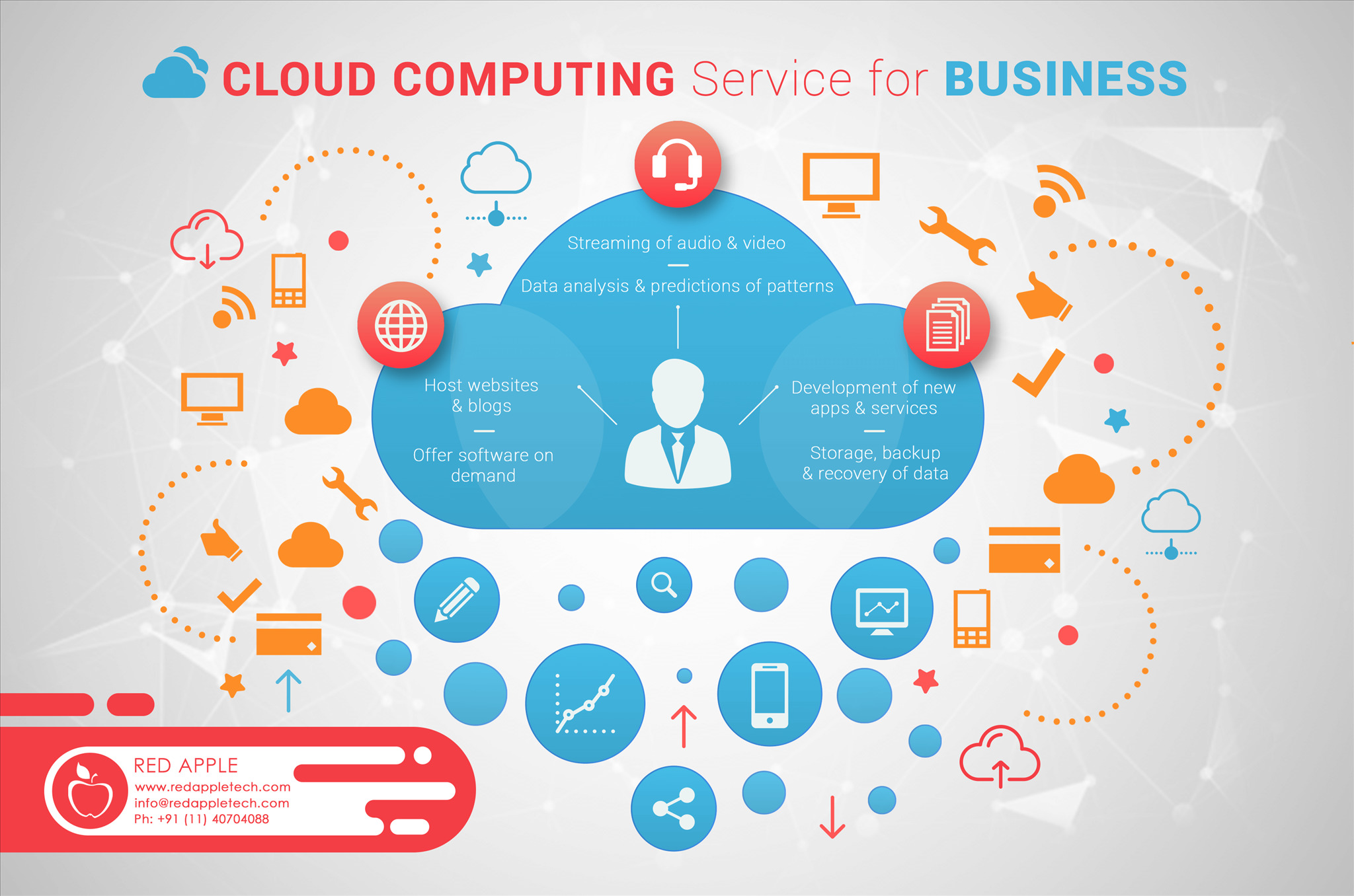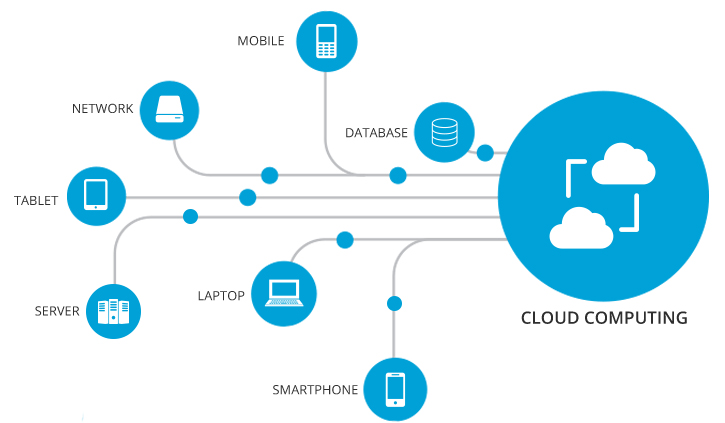Streamline IT Monitoring With Cloud Solutions
Cloud solutions have actually emerged as a practical remedy for services looking to improve performance, minimize prices, and improve total IT efficiency. Just how specifically do these cloud solutions change conventional IT management practices? Let's check out the transformative impact of leveraging cloud solutions on IT operations and the vital factors to consider for successful execution.
Benefits of Cloud Solutions

Additionally, cloud solutions allow companies to boost their operational efficiency by improving procedures and decreasing the time and sources needed for managing IT facilities. With cloud services, organizations can automate regular tasks, such as software application updates and information backups, freeing up IT groups to concentrate on more critical campaigns that drive service value.

Enhanced Scalability and Adaptability
Cloud services give organizations with unrivaled scalability and versatility in managing their IT resources efficiently. Scalability is an essential function of cloud solutions that allows business to quickly adjust their IT sources based upon need. With cloud solutions, organizations can promptly scale up or down their computing sources, storage capability, and network data transfer to satisfy changing needs without the requirement for substantial ahead of time investments in equipment. This flexibility makes it possible for companies to adapt to rising and fall workloads, seasonal needs, or unanticipated growth without experiencing downtime or efficiency problems.
Additionally, cloud solutions provide the flexibility to pick from a range of solution versions, such as Framework as a Service (IaaS), Platform as a Solution (PaaS), or Software Application as a Solution (SaaS), based on the details needs of the business. The enhanced scalability and flexibility used by cloud services empower businesses to enhance their IT procedures and stay nimble in today's vibrant market atmosphere.

Cost-Effectiveness and Savings
With the capacity to effectively allocate sources based on need, services making use of cloud services can harness considerable cost-effectiveness and realize significant cost savings in their IT procedures. Furthermore, cloud services reduce maintenance expenses by moving the duty of equipment maintenance and software application updates to the solution provider. Generally, the cost-effectiveness and savings achieved with cloud solutions make it possible for companies to reallocate resources towards advancement and development efforts.
Improved Safety And Security and Compliance
Enhancing the general protection stance and ensuring regulatory compliance are critical considerations for organizations leveraging cloud solutions in their IT monitoring strategies. Cloud solution companies supply advanced safety and security steps, such as data file encryption, multi-factor authentication, and automated back-ups, which can strengthen a business's safety and security structure. These service providers also follow rigid regulative standards, such as GDPR, HIPAA, and PCI DSS, aiding companies fulfill conformity requirements better.
Carrying have a peek at this site out cloud services can improve safety and security by supplying streamlined control over access management, surveillance, and data security. This central approach simplifies protection management and makes certain consistent application of safety plans across the organization. Moreover, cloud services frequently use real-time protection updates and spots, decreasing the risk of susceptabilities and prospective violations.
Best Practices for Cloud Application
Applying cloud solutions efficiently calls for a structured approach that incorporates thorough planning and persistent execution. To ensure a smooth transition to the cloud, companies should start by performing a thorough analysis of their present IT facilities and identifying which work are appropriate for migration. It is important to establish clear objectives and specify crucial performance indications (KPIs) to determine the success of the cloud implementation.
Among the very best practices for cloud application is to very carefully select a cloud provider that lines up with the organization's demands in terms of safety, scalability, compliance, and cost-effectiveness. Furthermore, creating an in-depth movement plan that lays out the actions entailed, timelines, and responsibilities is important for an effective implementation.
Regularly checking and optimizing cloud sources to guarantee effective performance and expense management is one more critical aspect of cloud implementation ideal methods. Continuous evaluation of the cloud setting and staying educated about updates and brand-new features supplied by the cloud copyright can additionally enhance the company's cloud technique. By following these finest practices, companies can improve their IT administration and maximize the benefits of cloud solutions.
Final Thought
Finally, leveraging cloud services for IT administration offers various advantages, including improved scalability, cost-effectiveness, boosted protection, and conformity. By following finest techniques for cloud application, companies can improve their IT procedures, automate regular jobs, and optimize source appropriation. This streamlined strategy enables IT teams to concentrate on strategic initiatives and innovation, inevitably providing value to the company. In general, cloud navigate to these guys services enhance operational efficiency and agility in managing IT framework.
Additionally, cloud solutions supply the adaptability to pick from a variety of solution versions, such as Facilities as a Solution (IaaS), System as a Solution (PaaS), or Software Application as a Solution (SaaS), based on the details demands of the organization. Additionally, cloud solutions reduce maintenance prices by moving the duty of hardware upkeep and software program updates to the service supplier.Enhancing the overall security position and ensuring governing find this compliance are extremely important factors to consider for companies leveraging cloud services in their IT management methods.Regularly monitoring and optimizing cloud sources to guarantee reliable efficiency and expense monitoring is an additional crucial facet of cloud execution ideal techniques. Continuous assessment of the cloud environment and remaining informed about updates and brand-new features used by the cloud supplier can even more boost the company's cloud strategy.